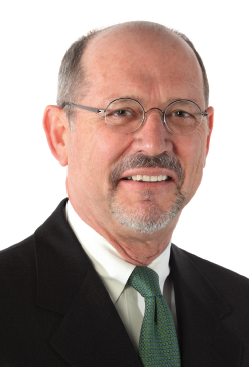
Daniel S. Fulton
President & CEO, Weyerhaeuser Company
Headquarters: Federal Way, Washington
Website: www.weyerhaeuser.com
Primary Business: Forest products
Revenues: $7.1 billion
Employees: 13,200
Developing Leaders, Inspiring Teams, and Building Partnerships
A thriving economy depends on the strong engines of business to drive it forward. At Weyerhaeuser, our track record speaks for itself. For more than a hundred years, we’ve been growing and harvesting trees on a sustainable basis to create products that meet important human needs, while providing stable, meaningful jobs in communities across the continent.
We think trees are remarkable. Even more amazing are the forests where they grow—a renewable resource with limitless potential, not just for today, but for generations to come. But this potential cannot be unlocked without the care and dedication, expertise, and ingenuity of people. In today’s world, engaging the very best talent to help us achieve our vision means not only seeking a diverse workforce, but also cultivating an inclusive work culture.
Diversity is not something to strive for—it is a fact. It describes the world around us. Each day, I interact with a wide range of people, all of whom bring vastly different skills and ideas to the conversation. So, for me, the question we must ask ourselves is not, “How can we be more diverse?” but rather, “Are we doing everything we can to embrace and unlock the power of our diverse experiences and distinct points of view?”
The company with the best answer to the second question should naturally become an employer of choice. People want to work where their unique contributions are respected, valued, and rewarded. When we tap the creativity, passion, and inventive spirit of all our people, the result is a strong, sustainable business that benefits society on multiple levels.
I’m proud of the work we’re doing at Weyerhaeuser to become that company. We strive to develop leaders who model inclusive behavior, inspire teams to execute winning strategies, and build partnerships to get lasting results. We encourage formal mentoring, support a range of affinity networks, and measure ourselves against how well we’re able to attract, develop, and retain the diverse, critical skills we need to be successful.
There is always more to be done, and I don’t pretend to have all the answers. The rapid shift in workforce demographics we are currently experiencing will demand shrewd focus and agility as we compete for the best and brightest. Most importantly, once they join our team, our culture must embrace all they have to offer. When we get this right, all our stakeholders—customers, investors, employees, and communities—will reap the rewards.
Education: BA, Miami University (Ohio); MBA, University of Washington; Advanced Executive Program, Stanford University
First Job: My first real job as a sixteen year old was working at a pharmacy.
What I’m Reading: Short Nights of the Shadow Catcher, by Timothy Egan
My Philosophy: When my two sons were young, I was a Scout leader, and we were committed to always leaving campsites in better shape than we found them. I apply that philosophy to everything I do.
Best Advice: I had an instructor in the Navy who, in somewhat saltier language, would begin every test with the admonition to “read the question.” I think this applies to all aspects of life. We need to understand the objectives for ourselves and for those with whom we interact. Once informed, seek solutions.
Interests: My wife and I are developing a wine grape vineyard in the Columbia Valley of Eastern Washington.






